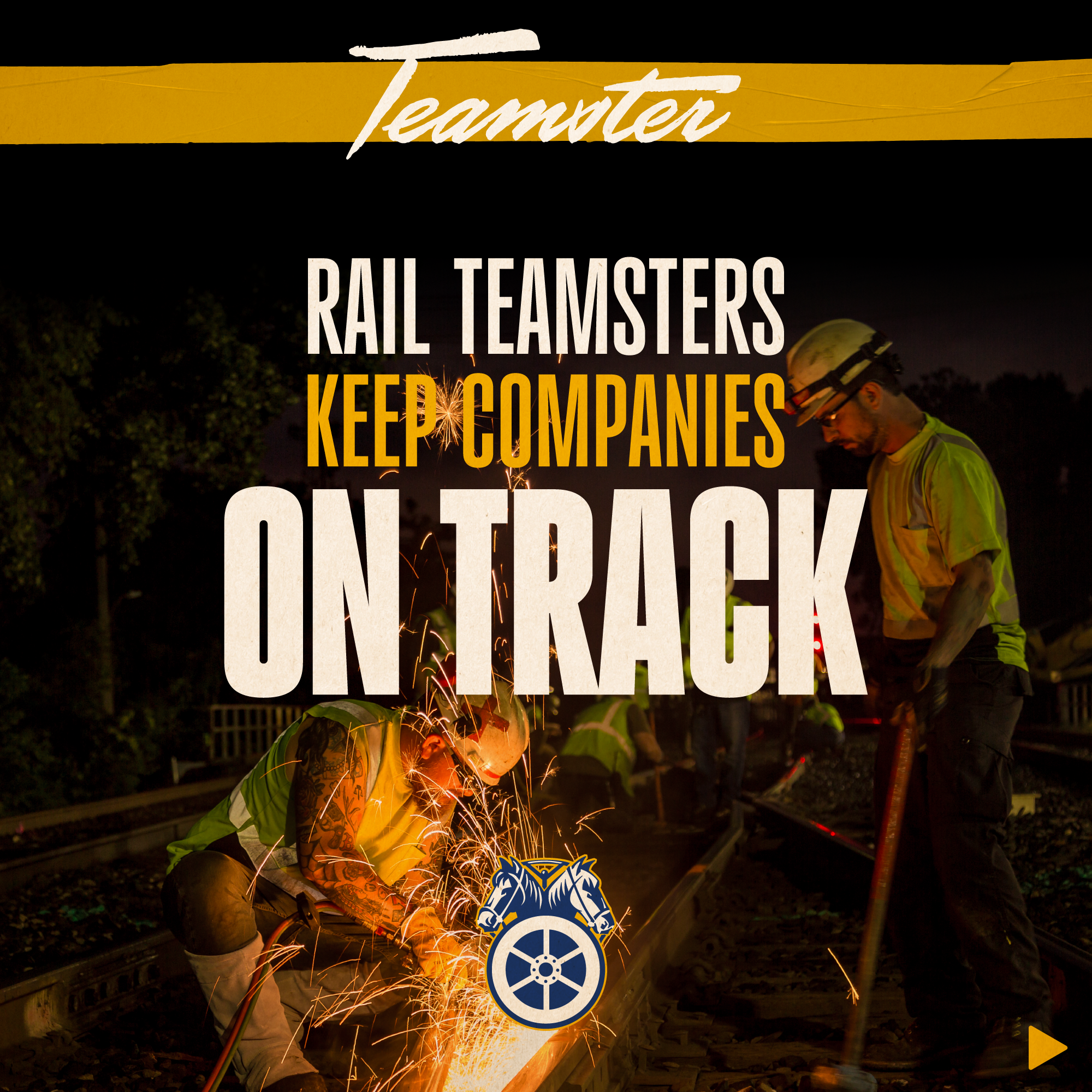News
Rail Teamsters Keep Companies on Track

The RLA Holds Railroaders Back. Teamsters Keep Pushing Forward.
Most workers in America are covered by the National Labor Relations Act (NLRA), which lays out their collective bargaining rights and the terms under which they can strike. These protections do not apply to those in the rail industry, though. Instead, work rules for rail workers are governed by the Railway Labor Act (RLA). This law is meant to make the rail industry more stable. What’s often left unsaid is that it does so by severely restricting the rights of railroaders.
While workers covered by the NLRA have strong legal protections when they take part in unfair labor practice strikes, the same rules do not apply to railroaders. For rail workers to strike, they have to go through a strenuous federal mediation process that can take years to play out — even if management refuses to bargain in good faith or commits unfair labor practices. And at the end of the mediation process, if a carrier fails to offer a fair agreement, the federal government can intervene and impose a contract on workers. In effect, the RLA stacks the deck against unions. But members of the Teamsters Rail Conference don’t let that stop them from negotiating industry-leading contracts.
The Teamsters Union represents over 70,000 workers in the rail industry. Made up of the Brotherhood of Locomotive Engineers and Trainmen (BLET) and the Brotherhood of Maintenance of Way Employes Division (BMWED), the Teamsters Rail Conference works hard to address the unique needs and priorities of Teamsters railroaders.
The BLET represents locomotive engineers, conductors, and other services employees who operate trains and help people and freight get where they need to go. Meanwhile, BMWED workers hold positions ranging from welders to track inspectors, making sure the trains run on time — literally! Time and again, these hardworking men and women have worked together to overcome the serious challenges posed by the RLA to bargain the best agreements in the business.
In January, nearly 4,200 CSX workers represented by the BMWED ratified a contract that boosted wages by 18.77 percent, reduced the time needed to accumulate vacation, and significantly improved health and welfare benefits and local work rules.
“CSX is very profitable, and that would not be possible without the hard work of our members,” said Nate Trawick, General Chairman of the BMWED’s Allied Federation. “Railroaders are some of the strongest workers in America, and this contract makes sure they will be paid and treated fairly for years to come.”
Just one month later, hundreds of Keolis locomotive engineers represented by the BLET secured a strong contract of their own. These workers, who operate the Massachusetts Bay Transportation Authority’s 14 commuter rail lines, locked in an agreement with wage increases of 31.87 percent, as well as three paid sick days, Juneteenth as a federal holiday, an improved bereavement policy, and strengthened work rules.
“This agreement doesn’t just secure significant work rule and quality of life improvements for our members,” said Pat Darcy, the BLET’s General Chairman at Amtrak. “It also locks in some of the highest general wage increases in the whole rail industry. We couldn’t have done it without the hard work of our bargaining team and the critical input of our BLET members.”
Every day, Rail Teamsters are setting the standard for how union workers are treated in this critical industry. And they are ready to keep leading the way in upcoming contract fights — whether it’s with the biggest Class I railroads or the smallest short line carriers.